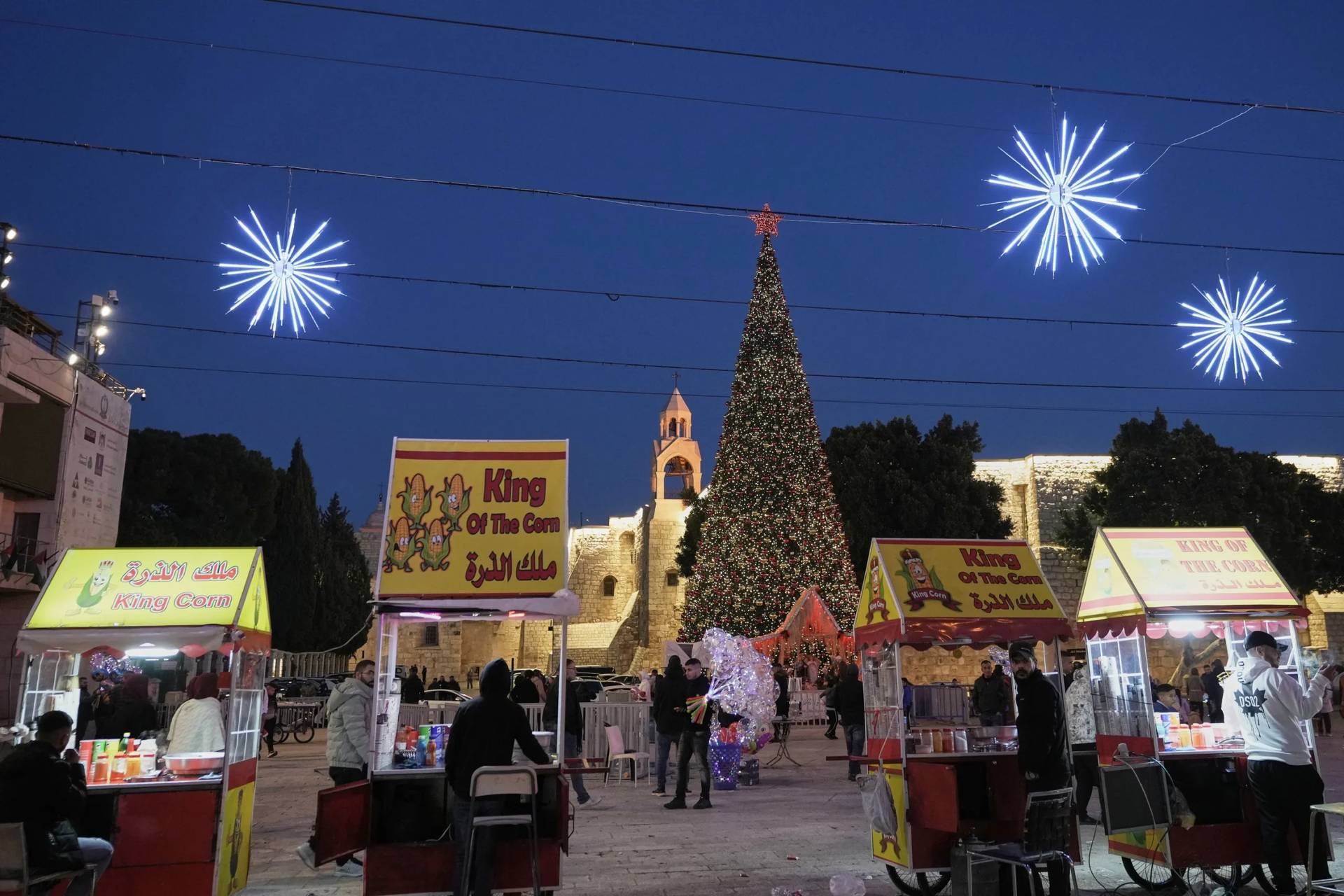In the wake of a crisis surrounding the Temple Mount in Jerusalem, the Vatican on Tuesday told the United Nations Security Council it supported “a comprehensive, just and lasting solution to the question of the City of Jerusalem.”
Earlier in the day, Israel began dismantling metal detectors it had installed last week, after two Israeli policemen were killed at a checkpoint at the site, which is called the Noble Sanctuary by Muslims.
After the installation, Muslims began protesting, accusing Israel of trying to expand control at the site under the guise of security.
During the Security Council meeting, Monsignor Simon Kassas – the Chargé d’Affaires of the Vatican’s mission to the United Nations – said the Vatican said Jerusalem needs an “internationally guaranteed” special status, in order to ensure the freedom of religion of the city’s inhabitants, “as well as the secure, free and unhindered access to the Holy Places by the faithful of all religions and nationalities.”
The Temple Mount is one of several sites in the Holy Land governed by what is known as the “Status Quo,” an arrangement guaranteed by the Ottoman government in the 18th and 19th centuries laying out who controls aspects of seven sites in Jerusalem and two sites in Bethlehem.
RELATED: Christian leaders worry about Status Quo in Jerusalem
Seven of these sites are Christian, and responsibility is shared between different Churches, and two – the Western Wall/Noble Sanctuary in Jerusalem, and Rachel’s Tomb in Bethlehem – are shared between Jews and Muslims.
Under the Status Quo, even the smallest change to any site must be approved by all the involved parties, and the unilateral installation of metal detectors could be seen as violating the principle.
Kassas told the Security Council “the historical status quo of the holy sites is a matter of profound sensitivities,” and reminded them that Jerusalem is sacred to Jews, Christians, and Muslims.
“Only last Sunday, during the Angelus prayer in St. Peter’s Square, Pope Francis, who is deeply concerned about the situation in Jerusalem, made a strong appeal for moderation and dialogue, praying that all may be inspired by the resolve to work for reconciliation and peace,” the Vatican diplomat said.
Kassas also reiterated the Vatican’s “firm support” for a two-state solution for the Israeli-Palestinian conflict.
“For this process to happen and succeed, Israelis and Palestinians must agree on substantial steps to lower tensions and de-escalate the violence on the ground,” the priest said. “Both sides must refrain from actions, including with regard to settlements, that contradict their stated commitment to a negotiated solution.”
Kassas said this also requires all the Palestinian factions to show a united political will and work together to address the needs of their people.
The Vatican has long supported the establishment of a Palestinian state, and began referring to the “State of Palestine” after Palestine was admitted as a non-member observer state at the United Nations – the same status as the Holy See – in December 2012.
The Vatican signed its first treaty with Palestine in 2015, and the Palestinians opened an embassy to the Holy See in January of this year.
After discussing the situation in the Holy Land during his remarks to the Security Council, Kassas called on “a renewed commitment by all to arrive at a political solution” for all the conflicts currently afflicting the Middle East.
RELATED: Christians need time to rebuild trust before return to Mosul region
“The Holy See believes that the rule of law, including respect for religious freedom and equality before the law based on the principle of citizenship and regardless of one’s race, ethnic origin or religion, is fundamental toward the achievement and maintenance of the peaceful and fruitful coexistence among individuals, communities and nations in the whole region and beyond,” he said.
In particular, Kassas said a peaceful settlement agreed upon by all the parties in the Syrian civil war “will bring stability back to their country.”
The priest said such an agreement would “allow for the safe return of refugees and internally displaced persons, foster durable peace and reconciliation, create the necessary environment for effective counter-terrorism efforts, and maintain the sovereignty, independence, unity and territorial integrity” of Syria.
“Christian communities have existed for over two thousand years in that region and have peacefully coexisted with the other communities,” he said. “The Holy See urges the international community, through the Security Council, not to forget them.”
















